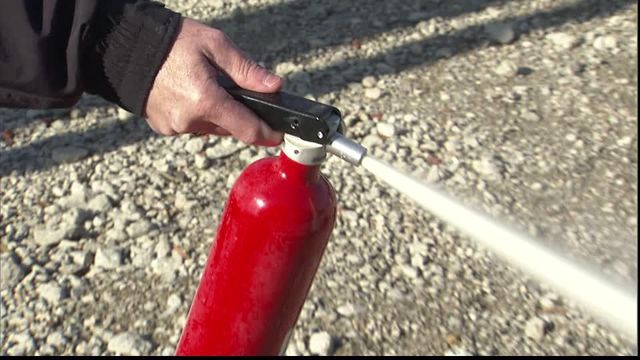Holiday cooking can be fire hazard
Around the holidays, the top cause of house fires isn't near the fireplace or around the Christmas tree, but in the kitchen: unattended cooking.
Posted — Updated"A good way to avoid that happening is to stay with your cooking while you're doing it," said Ronald Campbell, a fire prevention coordinator with the Raleigh Fire Department.
A fire extinguisher should be in every kitchen, he said. If it is needed, call 911 first, then pull the pin.
"Then you're going to sweep from side to side, and that's really about all you get," Campbell said. "You get about 10 seconds worth of discharge."
If you cook or heat with fossil fuels, you should have a carbon monoxide detector on each level of the home placed outside of sleeping areas.
Smoking is the second-most common cause of home fires, so smoke outside or quick.
To take precautions against the next big fire threat, check your electrical outlets and cords.
"A lot of times, folks will overload electrical outlets. They'll use products that are not quite the way they're meant to be used," Campbell said.
Often with Christmas decorations, people will use more wiring on trees they might not have watered enough.
A screen in the fireplace will keep embers from popping out onto the carpet.
"Stay in the room with it while it's being used," he said.
Smoke alarms are required in every home, but they need to be replaced every 10 years, and the batteries need to be changed annually and checked periodically.
"When it beeps at you – beep beep beep – you know it works," Campbell said.
Before the smoke alarm rings, have a fire escape plan, which includes two ways to get out of the house. From a second-floor room, you might need a ladder.
"It's a good option if you don't have easy access to a secondary escape route," Campbell said.
Then have a place to meet to make sure everyone is OK.
A study shows only 20 percent of Americans have a fire escape plan and practice it.
"It's crazy that people do them at work, at school, but the place we go to sleep at night is the place that we practice it least," Campbell said.
• Credits
Copyright 2024 by Capitol Broadcasting Company. All rights reserved. This material may not be published, broadcast, rewritten or redistributed.





